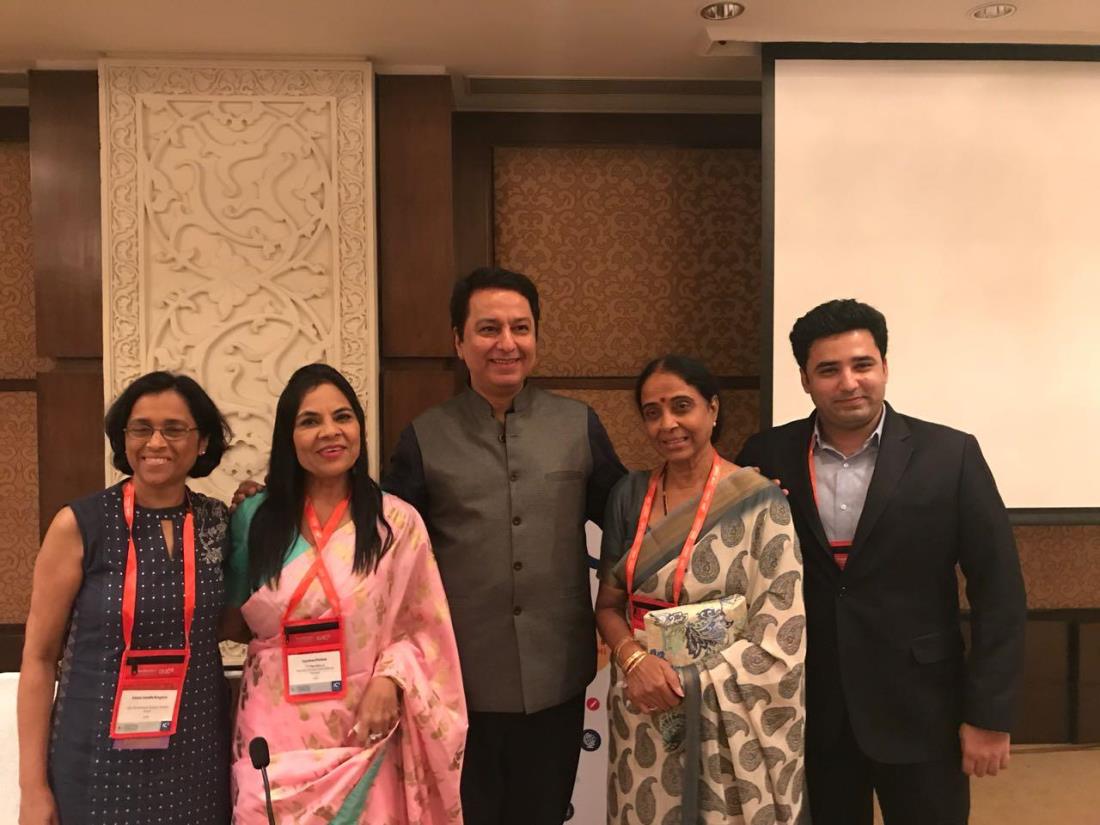
By Vivek Mansukhani, Head of IIE India
Students face a multitude of potential futures, none of which are easy to predict, let alone control. Even those with clear visions of their own and society’s future may find themselves blindsided by unpredictable advances in technology, sudden social change and economic vicissitudes.
This reality raises certain questions: Are there tools that students can be equipped with to deal with the uncertainties of the future? Whose responsibility is it to ensure students are successfully provided with them?
To discuss these urgent questions, I recently moderated a panel discussion with experienced secondary education leaders from across India – Dr. Geeta Gandhi Kingdon, Dr. Jayshree Periwal, Mrs. Lata Vaidyanathan and Mr. Siddharth Singh – at the recently held IC3 Conference in New Delhi in late August.
Panelists agreed that we cannot delay preparing for the future by hoping that things will somehow, magically just work out for us. Being future ready is not about crossing the bridge when we arrive at it, but an art that needs to be nurtured during students’ teenage years.
No one really knows what the future will look like. We can only make educated guesses. According to a recent report called Skills for Future Jobs published by Quest Alliance, more than five million young people will enter the labor force every year, for the next 10 years. Many of today’s jobs may no longer exist! There are very real threats from technological displacement and disruptions to the future of work. Social and economic upheavals, globalization, environmental concerns are all gamechangers.
Today’s education needs to be in synch with tomorrow’s jobs. As routine manual tasks become increasingly automated, as the availability of large amounts of data creates complex, new choices and decisions, as the blurring of physical and virtual spaces creates new forms of working and collaboration, we need to figure out how to future proof our younger generation and build core skills to help them develop sustainable career pathways.
While knowledge is about knowing “what,” skills are about knowing “how.” Some of the 21st century skill sets, or core competencies, needed to survive and flourish include critical reasoning, creativity, communication skills, problem solving.
We can refer to an IIE report, titled Gaining an Employment Edge, for a glimpse of what competencies will be most needed in the workplace of the future. In addition to certain cognitive, intrapersonal and interpersonal skills, students will also benefit from possessing a tolerance for ambiguity, or the ability to be comfortable with uncertainty, unpredictability, conflicting directions, and multiple demands. In other words, the ability to operate effectively in an uncertain environment.
Panelists unanimously agreed that it will take the collective efforts of all stakeholders – students, parents, the education system, the government, industry and society at large – to find ways to empower youth, through formal and informal experiential learning, so that the future offers them hope rather than fear.